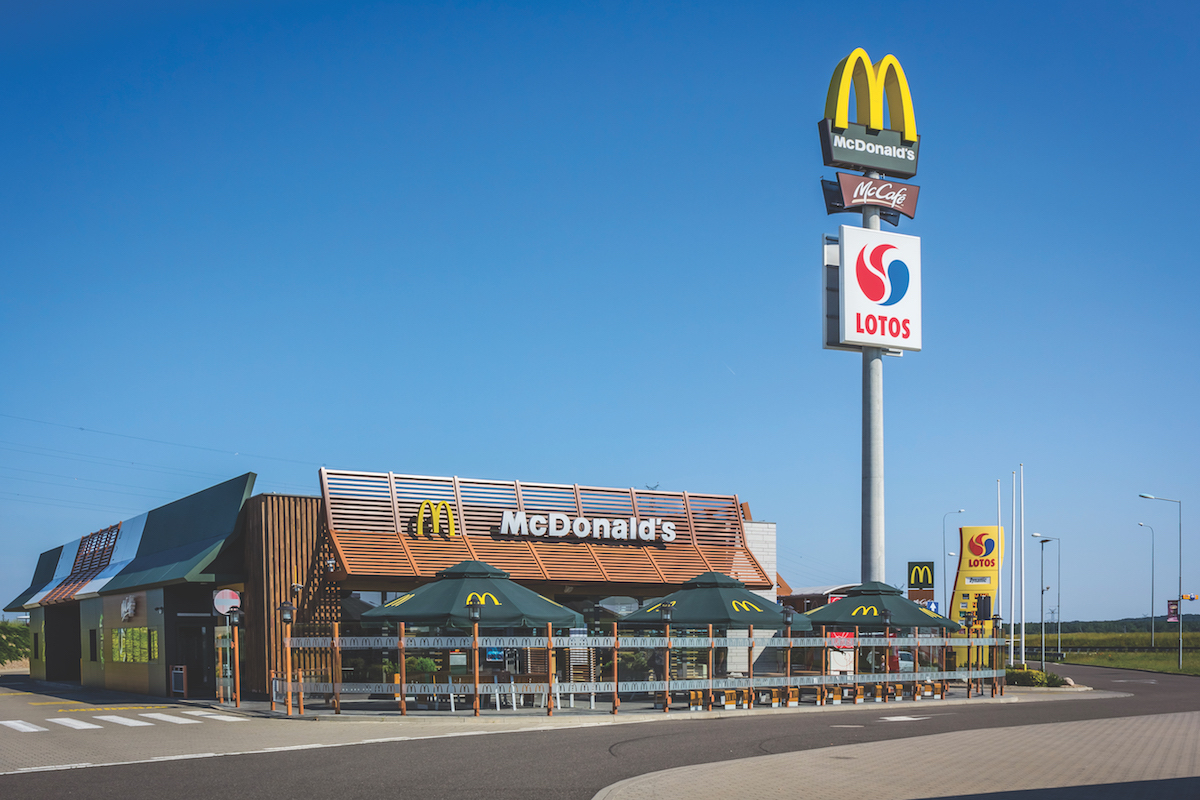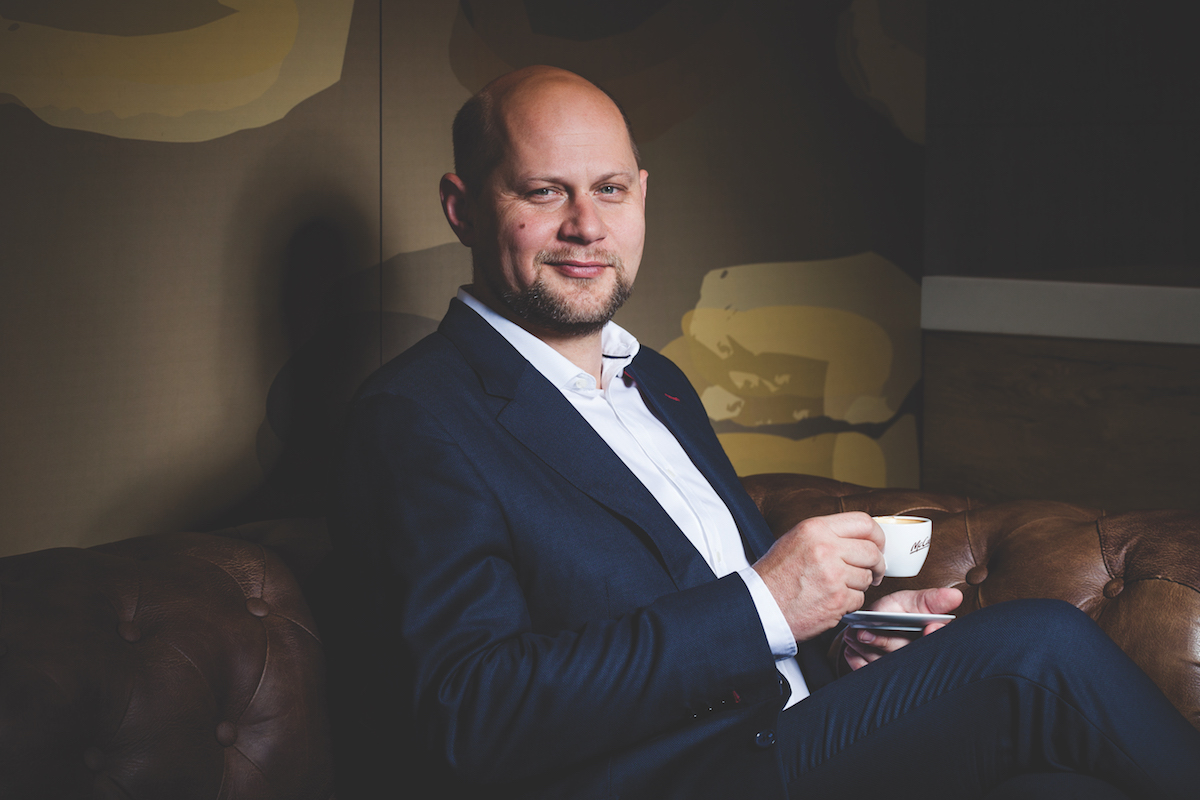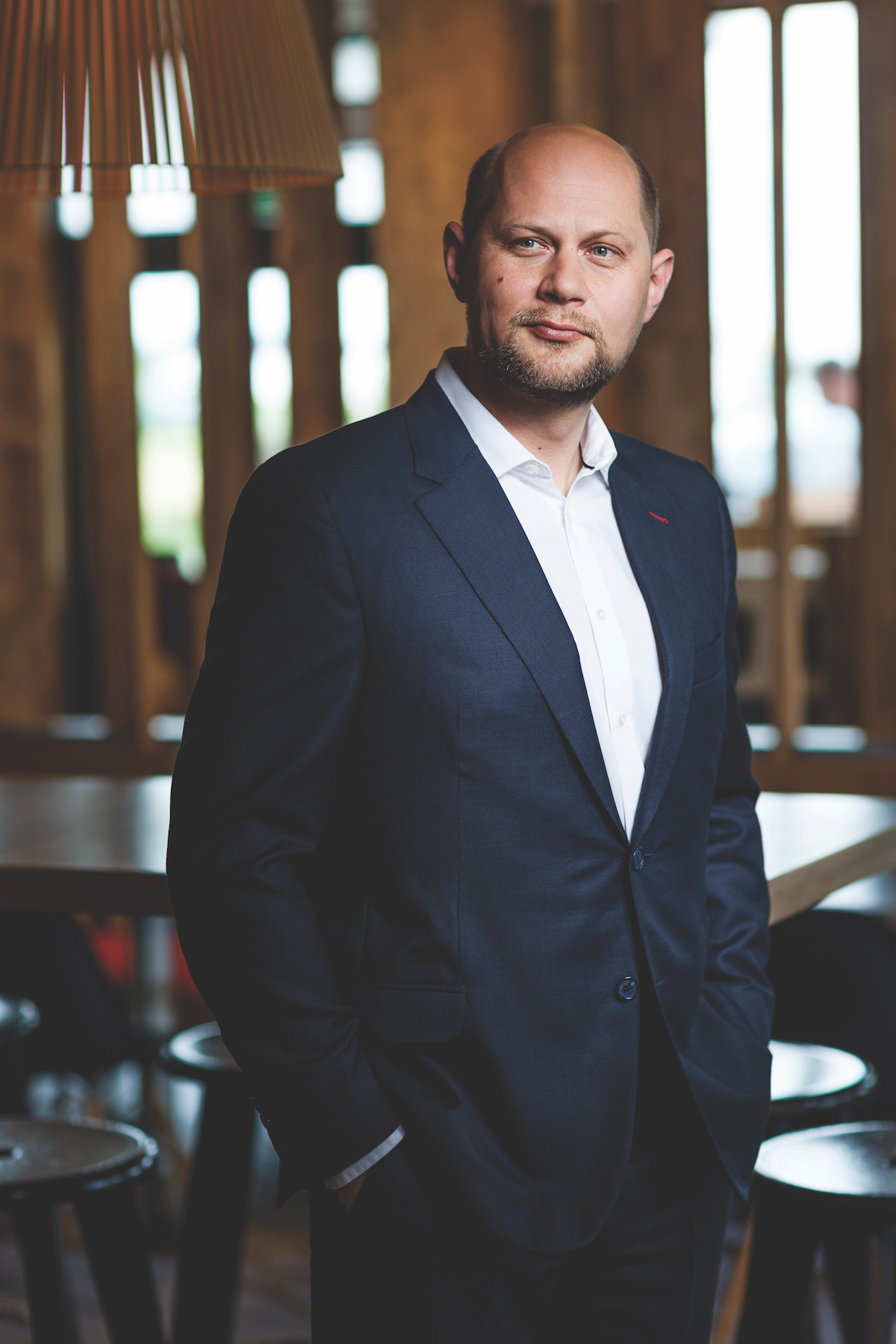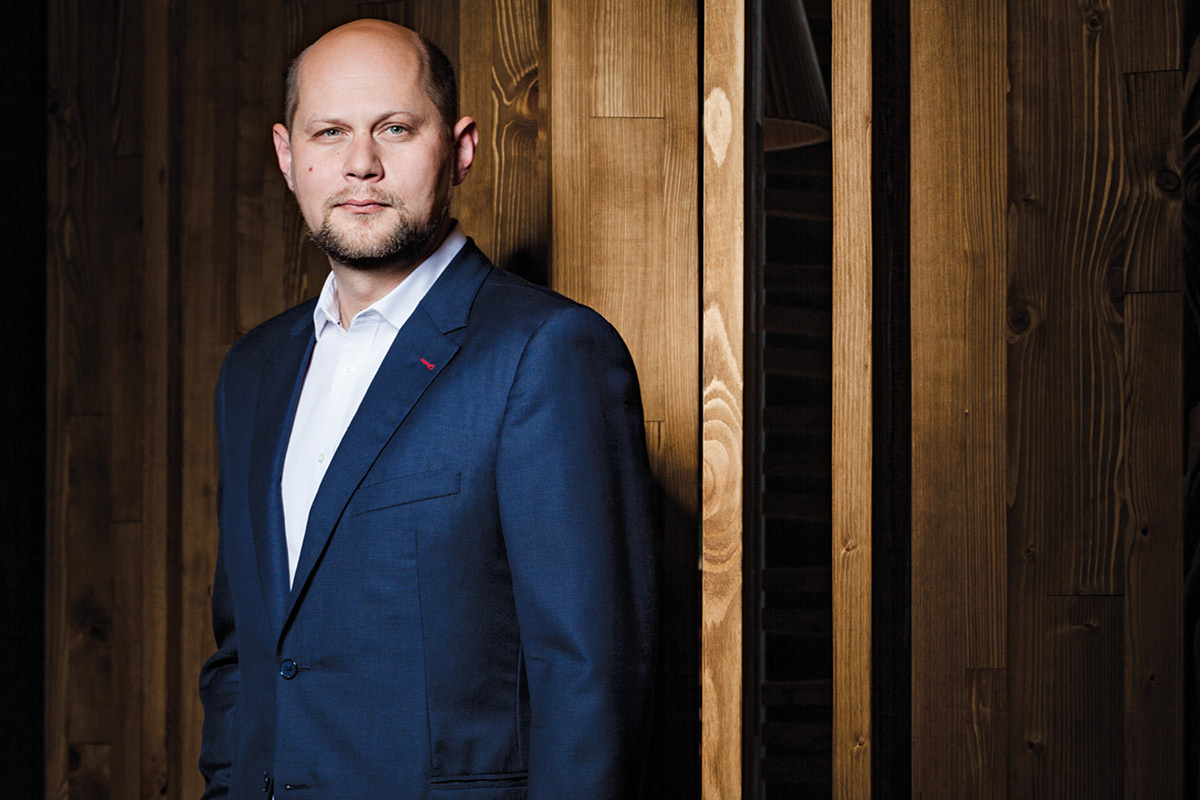McDonald’s probably shouldn’t have succeeded in Poland when it entered the market 25 years ago, at least not with its traditional menu. It’s a fast service empire built on the back of its succulent beef burgers, but the Poles have always preferred pork on their fork.
Yet, the strength of the golden arches brand overcame that obstacle, as it tends to do, and now beef is a staple of the country’s modern diet. They were always tea drinkers too, but thanks to such brands like McCafé, coffee has exploded in popularity. CEO Adam Pienkowski leads the brand into its next 25-year phase, and he says the evolving Polish culture and positive outlook bode well for the future of McDonald’s in the country.
The CEO Magazine: Can you tell me about your time at McDonald’s leading up to your appointment as CEO?
Adam: My background is in marketing. I studied at the Warsaw School of Economics Institute of Marketing and Management, and completed my master’s degree. My early professional experience was shaped in two American blue chip companies – in clothing and FMCG.
Having more than 10 years’ experience in brand development I joined McDonald’s Marketing Department in 2006. My first task was to create a customer business insight [CBI] team. After building that from the ground up, I was promoted to head up the department of the whole marketing and CBI team.
I stayed there until 2013, when I moved to Germany with McDonald’s to gain invaluable international experience. I returned a year later to take on a new assignment as the multi-function senior director. This was a role created to prepare me for the position of Managing Director. I was coordinating the work of a host of departments like marketing, CBI, digital operations and IT, and I was given thorough operations training during that time as well.
What attracted you to McDonald’s?
I think the biggest reason I joined the company was because I love the McDonald’s brand. From a marketing perspective, McDonald’s is a strong and powerful brand, and it excited me to be a part of that. When I started with the company I spent a great deal of time thinking about the factors behind the brand’s amazing success. I thought that it was predominately to do with either a local or a global focus.

But in fact, it’s both. It’s about acting locally, while using global tools. McDonald’s is basically in every country, and being a relatively big country, I saw – even back then – that there was an amazing opportunity to further develop the brand in Poland. And that’s saying something, because if you haven’t been to our restaurants, I can guarantee we offer an overall experience at least the equal of any other very well performing market in the world.
What opportunities did you see for McDonald’s in Poland when you assumed the CEO role in May 2016?
When I was offered the opportunity to run the company, I asked myself, ‘How can I further develop such a strong and powerful brand?’ The answer seemed to be obvious. First, we cannot stop delivering good and hospitable service to our guests. Second, the future is digital, so accelerating our digitisation and leading the way is a key opportunity.
The future is open because everything is created in the moment, and the world is changing so fast, and we, as a massive brand, are part of that change. In this new era of social media, we need to rebuild the bond between the customer and the brand, while ensuring we remain the modern, progressive burger restaurant that provides delicious feel-good moments for our customers.
The world is changing so fast, and we, as a massive brand, are part of that change.
Now, we are redefining customer experience in the category by having self-ordering kiosks and the ability to connect with customers on mobile devices. I can’t stress enough that my predecessors deserve the credit for the success of McDonald’s in Poland, and I am just trying to build on that success into the future.
Does the design of your restaurants reflect your modern and progressive outlook?
Compared with other McDonald’s restaurants worldwide, we are a leader when it comes to providing the template for the modern experience. There are only a few restaurants that have not been changed, renewed or remodelled, and this is because we have ascertained that there is no future for them any more because of their real estate challenges.
But once we know that there is a future for one of our restaurants, where there is a secure real estate situation, we invest in it. We modernise the exterior and interior, develop a multi-point service model, modernise kitchen equipment.
All products are freshly prepared, on demand. In each restaurant, we have new generation kiosks so customers can order by themselves, and customise certain products to fine-tune the taste profile. Not to mention we also boast a McCafé in every store, which is also accessible via the drive-thru. So, I think we offer the most services available at McDonald’s system worldwide, and I’m sure this is really appreciated by our customers.
You also expect the restaurant chain to grow organically because of Poland’s progression, is that right?
Poland is a beautiful and dynamic country, growing and developing rapidly. Going back 25 years, the country wasn’t like it is now. The economy struggled, we were a young democracy, and McDonald’s played a role in changing this. It is still influencing Poland’s evolution today.
Poles have historically been very pessimistic in the way they see the world, it has always been a bit ‘glass half empty’. People were reluctant to spend money on food outside their homes; it was a luxury they couldn’t and wouldn’t indulge in. But that attitude is changing, there is a lot of excitement in Poland now and we are growing our customer base and seeing people frequent our restaurants more because of it. So, it’s not only about McDonald’s, I think over the next couple of years, it is about the further development of the whole QSR [quick service restaurants] or IEO [informal eating out] segment.
Even tastebuds are changing in Poland?
Poland has always been about pork. This is because of our history, but also because pork is affordable. So, beef was not really in the eating habits of Poles. But, of course, we serve beef burgers. Every day, we serve hundreds of thousands of beef burgers, and more and more Poles are eating them and acquiring a taste for them.
And then there’s coffee. Because of the geographic location of the country, Poland has always been about tea, because it is a Slavic or eastern habit. Poles never had a coffee culture.
But right now, we have McCafé products in every restaurant, and McCafé is actually the number one coffee brand in the whole country. So, we are a part of the cultural change, and Poland’s growth. I don’t know what the limits are. Right now, we have almost 400 stores, and we strongly believe a 500th restaurant is an achievable target, and that won’t be the end.
So, what separates the golden arches from other QSRs in Poland?
Well, I don’t think there’s one solution, or a single tangible element, because generally it’s the culture of the company. McDonald’s is a brand that is forever young. We provide employment for Poland’s younger generations, and give them hope for the future. This is the moment they start their careers, it’s a new stage in their lives, and we bring them into a proper team working environment with a leading global corporation.

The other thing is that McDonald’s is not only corporate restaurants, their employees and customers; the brand is also about franchisees. This shows that we have the trust of entrepreneurs willing to invest
in McDonald’s.
So, comparing us to our competitors, I would say we keep much stronger alignment with our franchise community as far as operational standards of service are concerned. This is about trust and transparency. We even sequence investments. We want to be sure that entrepreneurs know how much they should expect to invest over a three-
to four-year period in advance, just to prepare them for such an important business decision.
Does McDonald’s experiment with the Polish market?
In Poland, we maintain very high operational standards, speed of execution and aligned franchising, so the McDonald’s corporation sees us as the ideal market to test new ideas. As we have close to 400 stores, the results from these tests can be considered relatively credible across the board. I am a person with a very strong marketing background, so for me it was » kind of natural, but at each stage of a new development, we started asking customers what their opinion was.
We asked, ‘How is it?’, ‘What’s the perception?’, ‘What’s the effect in terms of the food freshness?’. And through that, we established a really clear direction for the company. So, we were pioneers. We were sharing this information, our findings, with the corporation, and some of the solutions we identified in Poland have now been implemented worldwide.
Can you tell us about some of those developments?
In 2012, we started the change process. We began to invest a lot in customer service, bringing completely new solutions to our restaurants – we called it platform integration. Over that time, we changed the production line in the kitchen, we launched the possibility to order at a few different touchpoints, and we launched McCafé.
This was a real step forward. It started in only a handful of restaurants, and now, as I’ve mentioned, we have these innovations in every store, and offer drive-thru McCafé too. Then in 2014, we started to install self-ordering kiosks. We thought at the beginning that the kiosk was only about speeding up the process for our customers, but in fact it’s not.
We found that it’s about making the ordering process much more comfortable. They have a screen in front of them, so they can play around and personalise their orders without the pressure of another customer waiting directly behind them. We take a step-by-step approach. It is about learning, adjusting to the customer, and slowly scanning to ensure we achieve the highest level of speed-of-service and customer satisfaction.
How important is it to build strong relationships with your suppliers?
There are different groups of suppliers – there are the suppliers of our food ingredients, there are the suppliers of our kitchen equipment, and there are the suppliers involved in the construction of our restaurants. We need a positive relationship with all those groups and we do that by keeping them as close as possible through effective and regular communication. When the corporation, franchisees and suppliers are all speaking the same language and understanding each other, the result is success.
When the corporates, franchisees and suppliers are all speaking the same language and understanding each other, the result is success.
We get tailor-made solutions for our restaurants because we invite our suppliers to help us gauge what our customers want. Our product is of course vital too, and a big part of that is improving our quality perception. So, we invest a lot in local farmers because customers want to eat locally sourced beef and locally grown potatoes.
At the end of the day, our success is our suppliers’ success, so it’s incredibly important to have strong partnerships. In fact, recently at our twenty-fifth anniversary gala, we awarded 40 of our suppliers with commemoration trophies, as a way of signifying the respect we have for them.
You touched on it earlier, but how important are employees to the overall experience McDonald’s provides?

Once again, from my perspective wherever we go, whatever we do, we should think about what we are offering our customers. What they experience from the moment they enter to the moment they leave.
So, it’s the speed of service, the friendliness of the staff, the quality of food, the cleanliness of the restaurant and everything else that adds to the whole hospitality experience. And all of this comes down to the people who work there. That’s why it’s so important to have the right team in both the restaurant and in the office. Talent development drives the execution of our programs in a positive way.
You also mentioned that digitisation is an area you’re focusing heavily on. Can you tell me what you’ve done so far, and what’s in store going forward?
There are a lot of accelerators, which are the new ways of accessing and building relations with today’s customer. This is via digital platforms, being active, being innovative, offering new possibilities
for getting in touch. In Poland at the moment, we have a very basic mobile application, developed locally, that is one of the country’s top 10 lifestyle applications.
It has been extremely well received; people just love it. They use it to find out information about us and take advantage of special offers. Approximately two million people already have it and use it. Again, this is just a very basic way of contacting our customers and as a company I can see a lot of good examples of how to move this experience forward. Services like mobile ordering and mobile payment is in our not-too-distant future, and I’m extremely excited about the development of the company in this digital age.
I believe you see home delivery as another important accelerator?
Again, it’s a brilliant idea, looking at the current experience of the customers. A lot of people buy food from McDonald’s and bring their meals home. So why shouldn’t we do this ourselves or through a partner? We specialise in cooking and preparing the food, so it makes sense to find a proper partner that is able to deliver our food from the restaurant to the customer’s home within a certain amount of time.
That’s the best thing we can do, and it can bring very positive business results. McDonald’s started the cooperation with UberEATS in July this year. For the time being McDelivery is offered in Warsaw. The initial results are promising, so we are going to work on an extension of this offer. We need a little bit more time to understand how fast and how deep we can develop this service.
So, there are many irons in the fire?
Absolutely. But first and foremost, McDonald’s is a food business and we should always offer delicious burgers. That is important, because as our focus shifts to innovation in products and services, we cannot afford to forget about the basics – great taste and quality. We already do many things in a good way. The next step is to find ways to do those same things even better. That’s something that our customers count on and we, as a modern, progressive burger company, should deliver.



